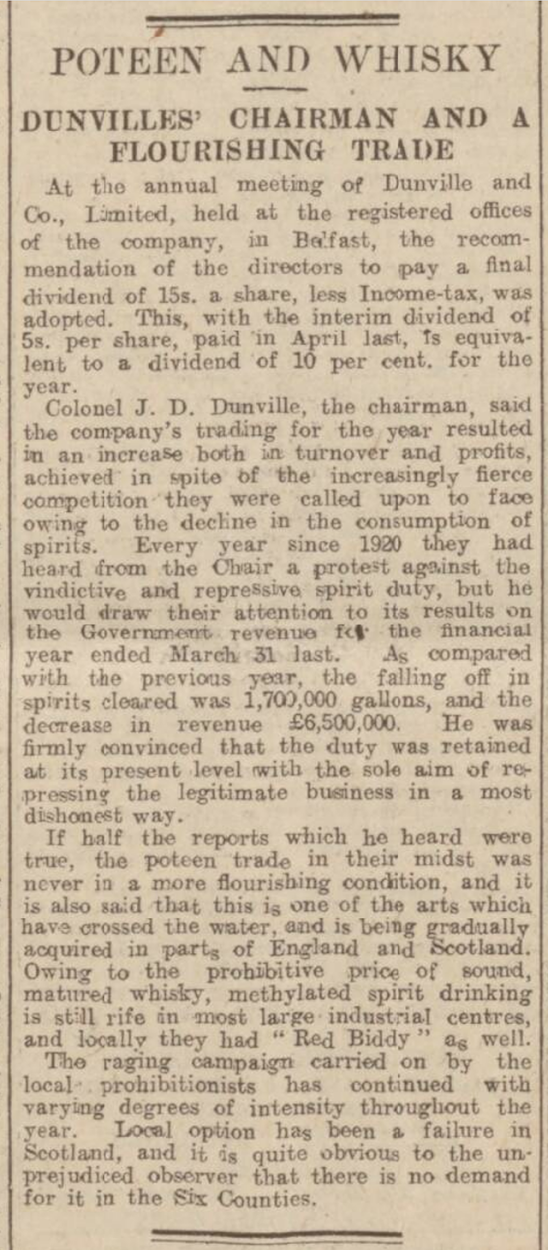Nationalist MP for Fermanagh and Tyrone, Thomas Harbison is reported as saying that –
"... he did not believe that temperance legislation would ever make people temperate. The only way to make people temperate was to teach the children at their mother's knees and afterwards in their respective churches. They could never work a moral revolution by legislation. The only way to make men temperate was by giving them liberty, for if they curtailed men's liberties there was something in human nature that caused them to rebel against coercion ..."
Independent Unionist Colonel Philip James Woods said that "... visitors to hotels should have the same liberties in Ulster as they had in England". He was also concerned at the threat to "... personal liberty that police should have the right to go in and inspect clubs. The man in the street had not been considered, only the trade and the temperance party were consulted."
But the most revealing response was from the man pictured above, the renowned Independent Unionist Tommy Henderson – check this out from the Belfast News-Letter:
The Belfast Telegraph report that same day expanded on Henderson's point about class – "the Government supporters could always get as much drink as they wanted ... the eating of ice-cream was more dangerous than a drop of decent liquor".
Henderson was at least partly correct. The restrictions on 'decent liquor' by official alcohol licensing laws had led to a sharp increase in the illicit production of sub-standard illegal stuff – not the romance of poteen, but the home-made horror of a drink nicknamed Red Biddy which was a mix of cheap wine and methylated spirits. A year earlier, Nationalist MP "Wee"Joe Devlin (who also had a background in the drink trade) had warned of the social problems that the invention of Red Biddy was causing, and said in a Stormont debate "in the name of temperance you are poisoning the public of Ulster, and soon you will have no constituents left" (Lurgan Mail, 13 November 1926).
Below is a report from the Western Morning News from 24 October 1927, less than two weeks before the debate, given by the chairman of Dunville's on seriousness of the issue. Whisky sales were declining so of course he had a commercial interest at stake. (It is interesting that he said that poteen production had been exported from Ireland into Scotland and England.)



No comments:
Post a Comment